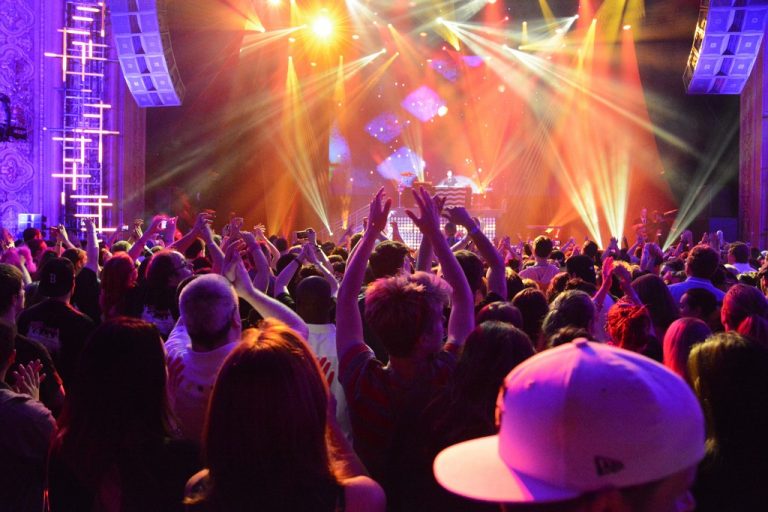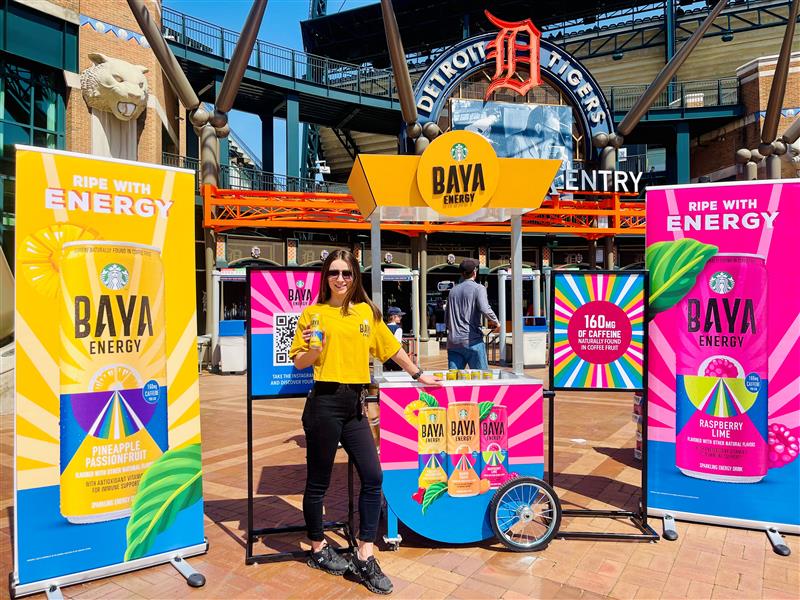07.29.22
By Lisa Major

Experiential marketing has proven itself to be more than a trendy buzzword. It has become a mainstay for brands and organizations of all sizes, and for a good reason… it’s insanely effective.
If the pandemic taught us anything, it’s that people need each other. We crave a sense of belonging and community, and experiential marketing delivers that. The strategy is different from most marketing tactics because it utilizes several tools to create experiences that are memorable and powerful. Furthermore, it allows brands to tailor campaigns to a hyper-targeted audience, creating authentic and personalized experiences that reach consumers on a deep, emotional level. But this is just the beginning of what experiential has to offer. Below we look at some of the key benefits of experiential marketing.
Brand awareness goes beyond brand recognition. As a brand, you want people to know your story, values, and mission, and experiential marketing will help accomplish that. By getting boots on the ground, you’ll generate brand awareness and create relationships and authentic connections with consumers. To ensure your message resonates and makes an impression, provide key talking points for your brand ambassadors to convey.
What does this mean? For starters, in-person experiences are comfortable, and more importantly, they are not intrusive. Experiential marketing reaches consumers where they are content and where they want to be. By engaging consumers in their comfort zone and on their terms, they are more likely to respond, interact, and engage with what you are doing, resulting in more impressions and increased ROI.
The sights, the sounds, and the conversations found at a brand activation all play an integral role in how consumers perceive your brand. We all know that first impressions are everything and experiential marketing events allow brands to make an unforgettable first impression. Each aspect of your activation, from visual elements to interactions with your brand ambassadors to activities and giveaways, factors into how consumers will remember your brand. When done right, it will leave a positive and memorable impression on consumers.
It doesn’t get much better than “try before you buy.” Allowing consumers to experience a product firsthand can significantly impact sales, not to mention it gives you valuable, real-time feedback. And this strategy isn’t limited to a physical product. Service providers can use this tactic, too, by offering demonstrations, discounts, free trials, exclusive content, ETC.

In this connected world that we live in, word-of-mouth marketing is a powerful tool. When consumers enjoy something, whether it’s a product, an event, a conversation, or an experience, they often tell the world about it (the same goes for negative experiences). Experiential fosters word-of-mouth marketing, which broadens your reach beyond the activation itself.
Experiential is unique in that you can pair it with other marketing strategies for even more exposure. Incorporating a social media strategy into experiential generates unique consumer content and will extend your reach to an even broader audience. Presenting them something worth sharing is the key, whether it’s a share-worthy design or a fun, personalized element.
A step beyond brand awareness is nurturing brand loyalty. Unlike traditional strategies where companies spout off whatever they think consumers want to hear, face-to-face experiences allow consumers to have a real-life moment with the brand, creating an emotional tie. That emotional connection leads to brand affinity, which ultimately leads to repeat customers or brand loyalists.
Sensory experiences are widely believed to play an essential role in what we remember. And the beauty of experiential marketing is that it engages the senses giving brands a prime opportunity to create memorable moments with consumers. When brands create an enjoyable experience, they build a lasting and impactful impression. You don’t have to limit yourself here; aim to engage multiple senses to maximize results.
Authenticity is vital in today’s marketing world, but that is hard to achieve with most types of advertising for several reasons. For starters, most traditional ads are impersonal. Additionally, due to the constant bombardment of ads we see and hear daily, we tend to turn a blind eye and a deaf ear to those ads. But with experiential marketing, brands create two-way conversations with consumers, engage them face-to-face, and offer them a feel-good experience that humanizes the brand.
Experiential attracts people to brands, creates awareness, generates leads, increases sales, and boosts brand loyalty. As a result, it ultimately leads to a boost in brand perception and drives purchases and growth.
When consumers feel happy and drawn to a brand, it’s a win-win for everyone. Experiential marketing gives consumers what they need to cultivate long-lasting relationships.
Since 2002, ATN has been the experiential event staffing company of choice for brands and marketing agencies. We work tirelessly to raise the bar and provide impactful solutions for our clients’ specific needs and challenges. If you are looking for an experienced and dedicated experiential event staffing partner, we would love to assist!